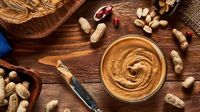For years, the quest to slow the march of time has captivated scientists and the public alike, with countless remedies and regimens promising to keep us youthful. Now, a pair of new studies is shedding light on two surprisingly simple tools that just might help dial back the body’s biological clock: vitamin D supplements and a handful of peanuts.
On August 15, 2025, researchers from Boston and Barcelona unveiled findings that could reshape the way we think about aging—and what we snack on in the process. The first study, led by Dr. Jo-Ann Manson, suggests that a daily dose of vitamin D may have a significant impact on the aging process at the cellular level. The second, conducted by a team at the University of Barcelona, points to peanuts as a potent, everyday ally in the fight against cellular aging.
Let’s break down what these studies found, why telomeres matter, and what it could mean for anyone hoping to add a few healthy years to their life.
Vitamin D: More Than Just a Sunshine Supplement
According to The Sun, the landmark vitamin D study followed adults who took 2,000 IU of the supplement daily for four years. The results were striking: those who took vitamin D experienced significantly less shortening of their telomeres—the DNA caps that protect the ends of chromosomes and are closely linked to the aging process—than those who did not. This slower telomere attrition translated to nearly three fewer years of biological aging over the study period.
Telomeres have long been compared to the plastic tips on shoelaces, preventing chromosomes from fraying and sticking together. Each time a cell divides, these protective caps get a little shorter. When they become too short, the cell can no longer divide and either dies or becomes dysfunctional. That’s why telomere length is considered a key marker of biological aging.
Vitamin D’s anti-inflammatory effects may be at the heart of its telomere-preserving properties. As Dr. Manson, the trial’s lead investigator, explained, the findings point to "a promising role for vitamin D in slowing a pathway for biological aging and age-related chronic disease." But she also cautioned that these results, while encouraging, are not a green light to abandon other healthy habits. "Keep in mind that taking a supplement will never be a substitute for a healthy diet and healthy lifestyle," Manson told reporters. "Although it’s much easier to pop a pill than to be physically active outdoors and eat healthfully, these lifestyle factors will do more to keep you healthy and lower your risk of cardiovascular disease, cancer, type 2 diabetes, and other chronic diseases of aging."
The same study also looked at omega-3 fatty acids, another popular supplement, but found no effect on telomere length—making vitamin D the clear standout in this trial.
Peanuts: A Snack With Serious Benefits
Meanwhile, across the Atlantic, scientists at the University of Barcelona were investigating whether a common snack could also help keep cells young. Their study, published in the journal Antioxidants, recruited 58 healthy volunteers aged 18 to 33. Participants were divided into three groups: one group ate 25 grams of peanuts daily, another consumed a daily serving of peanut butter, and the third acted as a control group with a different butter. Over six months, researchers collected saliva samples to monitor changes in telomere length.
The results were eye-opening. The group that snacked on peanuts saw their telomeres shorten at almost half the rate of the peanut butter group. In other words, whole peanuts appeared to slow cellular aging far more effectively than their processed counterpart. The control group, which didn’t consume peanuts or peanut butter, saw no such benefit.
Why might peanuts have this effect? According to the Antioxidants study, peanuts are rich in antioxidants like vitamin E, niacin, and resveratrol. These nutrients help protect the body’s cells from damage caused by free radicals—unstable molecules produced during normal metabolism that can harm DNA and accelerate aging. By neutralizing free radicals, antioxidants may help preserve telomere length and, by extension, slow the aging process.
The study’s authors emphasized the importance of whole foods over processed alternatives. "These findings highlight the potential benefits of incorporating peanuts into the diet as a means of promoting cellular health and longevity," they wrote. The results underscore "the importance of whole foods over processed alternatives in promoting cellular health."
However, as with the vitamin D study, the researchers urged caution. They noted that more research is needed, particularly longer trials involving more diverse and older populations, to confirm these promising results. And they offered a practical tip: opt for unsalted peanuts to reduce the risk of cardiovascular disease.
The Bigger Picture: Nutrition, Lifestyle, and Longevity
Both studies highlight the growing scientific interest in telomeres as a measure of biological aging—and as a potential target for interventions aimed at extending healthy lifespan. While genetics play a role in how quickly our telomeres shorten, lifestyle factors like diet, exercise, and stress management are increasingly recognized as powerful influences.
According to the British Heart Foundation, nuts (including peanuts) are often misunderstood due to their fat content. But in reality, they’re packed with vitamins, minerals, protein, and healthy fats. A 30-gram serving of nuts typically contains between 180 and 225 calories—more than a bag of crisps but less than a chocolate bar, and with far more nutrients. Walnuts are a good vegetarian source of omega-3 fats, and most nuts are low in saturated fat. The Foundation recommends eating whole, unsalted nuts in place of less healthy snacks and cautions against varieties with added salt, sugar, or coatings.
Still, moderation is key. Because nuts are calorie-dense, portion control matters. The advice? Take out a small handful and put the rest away to avoid overindulging.
What’s Next?
While the findings from these two studies are certainly encouraging, experts stress that they are not a magic bullet. More research is needed before public health guidelines can be updated. In the meantime, both research teams agree on a common message: supplements and snacks can play a role in healthy aging, but they’re no substitute for an overall balanced lifestyle that includes regular physical activity, a varied diet rich in fruits and vegetables, and other positive habits.
As the science of aging continues to evolve, one thing is clear: small, everyday choices—whether it’s a walk in the sun or a handful of peanuts—can add up to meaningful differences in how we age. For now, the path to a longer, healthier life might just start in your pantry or your supplement bottle.




